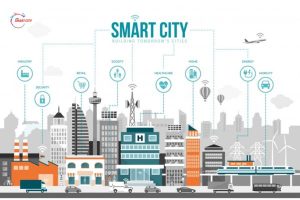Educating the Future: Shakila Sarkar, Lecturer, Anandapur Degree College, Cumilla

Advancing Educational Development in Comilla City through Innovation, Access, and Equity
Education is the bedrock of progress—socially, economically, and culturally. In today’s rapidly urbanizing world, cities are no longer just centers of commerce and infrastructure; they are hubs of knowledge, talent, and opportunity. Comilla, a historically rich and strategically vital city in Bangladesh, has embraced this vision. Through the leadership of the Comilla City Corporation (CuCC), the city is witnessing a significant transformation in its educational landscape.
From improving public schools and expanding vocational training to embracing digital classrooms and inclusive education, CuCC is committed to ensuring that every child and young adult in Comilla has access to quality learning opportunities. This article explores the key initiatives, achievements, and challenges of educational development in Comilla City—and how this transformation is shaping the future of its people.

Comilla’s Educational Legacy
Comilla has long been recognized as a city of learning. It is home to some of the country’s oldest institutions, such as:
- Comilla Victoria Government College
- Ispahani Public School and College
- Comilla Zilla School
These institutions have produced many prominent figures in the fields of politics, academia, and literature. However, with urban growth and demographic changes, the demand for equitable, modern, and skills-oriented education has increased. The response from CuCC has been both strategic and student-focused.
Expanding Access to Education
A major challenge in urban areas is ensuring that children from all socio-economic backgrounds can access education. CuCC has taken concrete steps to promote universal primary and secondary education.
- Renovating and Expanding Public Schools
- Over 25 government-run primary and secondary schools within CuCC jurisdiction have been renovated with modern classrooms, sanitation facilities, and playgrounds.
- Schools have received new furniture, science lab equipment, and library materials.
- Free Textbooks and Scholarships
- CuCC ensures timely distribution of textbooks at the beginning of each academic year.
- Merit-based scholarships are awarded to students from low-income families to prevent dropout.
- Inclusive Enrollment Drives
- Door-to-door campaigns and community outreach ensure that every child is enrolled in school, especially in slum and migrant communities.
- Special emphasis is placed on girl child education and preventing early marriage.

Introducing Digital and Smart Education
With the rise of technology, CuCC has made efforts to digitize education and prepare students for the 21st century.
Key Innovations:
- Digital classrooms with projectors and internet access in selected schools.
- Training for teachers on using multimedia and e-learning platforms.
- Collaboration with the Ministry of Education and NGOs to launch smart learning programs in public schools.
These changes help bridge the gap between traditional learning methods and the digital future, making education more engaging and practical.
Vocational and Technical Education for Youth
As Bangladesh moves toward a knowledge-based economy, there is growing demand for technical and vocational education. CuCC is investing in skills development programs that align with market needs.
Vocational Training Includes:
- Computer literacy and office applications
- Electrical and mechanical skills
- Dressmaking, tailoring, and handicrafts
- Basic entrepreneurship training
By collaborating with polytechnic institutes, NGOs, and industry partners, CuCC is helping youth gain employable skills that reduce unemployment and empower families.

Girls’ Education and Gender Equality
Empowering girls through education is a key pillar of Comilla’s development strategy.
Focus Areas:
- Separate sanitation facilities for girls in schools to reduce dropout.
- Mentoring and confidence-building workshops led by female professionals and educators.
- Life skills education including health, hygiene, and safety.
These initiatives have significantly improved the enrollment and retention of girls, especially in secondary school.
Education for All: Reaching the Marginalized
Education must be inclusive of all abilities and backgrounds. CuCC has introduced programs for:
- Children with disabilities: Specialized teachers, ramps, and inclusive materials.
- Street children and working children: Non-formal learning centers with flexible schedules.
- Ethnic and linguistic minorities: Culturally sensitive materials and language support.
By ensuring that no one is left behind, Comilla is building a more just and equitable society.

Library and Literacy Initiatives
To promote lifelong learning and a culture of reading, CuCC has:
- Renovated community libraries and reading rooms.
- Introduced mobile libraries that travel to schools and slum areas.
- Organized book fairs, essay competitions, and reading campaigns throughout the year.
These programs nurture not just literacy, but curiosity, imagination, and civic awareness.
Teachers: The Backbone of Education Reform
CuCC understands that no education system can succeed without qualified, motivated teachers.
Teacher-Focused Programs:
- Professional development workshops on pedagogy and technology.
- Incentives and awards for outstanding teachers.
- Encouraging female teacher recruitment to create supportive environments for girl students.
Teacher feedback is also incorporated into policy planning, making reform efforts more grounded and effective.

Challenges Ahead
Despite progress, several challenges persist:
▪️ Overcrowding in Urban Schools
Population growth and rural migration have created pressure on school infrastructure.
▪️ Budget Constraints
Funding for digital classrooms, teacher training, and free meals needs expansion.
▪️ Youth Dropout and Migration
Many young people still leave school early due to financial hardship or job-seeking needs.
▪️ Unequal Access
Children in slums or with disabilities often face systemic barriers to learning.
Addressing these challenges will require continued investment, multi-stakeholder collaboration, and strong political will.
The Road Ahead: A Vision for 2030
CuCC aims to align with national and global goals, such as:
- SDG 4 (Quality Education) and Vision 2041 of Smart Bangladesh
- Introducing STEM education and climate literacy
- Strengthening pre-primary and early childhood education
- Expanding public-private partnerships in educational innovation
The future goal is a city where every child learns, every youth is skilled, and every citizen is informed and empowered.

Education is not just about schools and certificates—it is about unlocking human potential. Through strategic investment, inclusive policies, and innovation, Comilla City Corporation is building a model for urban educational development in Bangladesh.
From girls in classrooms and youth in training centers to teachers using smart boards and communities borrowing books, education in Comilla is evolving—and so is its future.
As the city continues its journey of growth and transformation, one thing is clear: an educated Comilla is an empowered Comilla.

